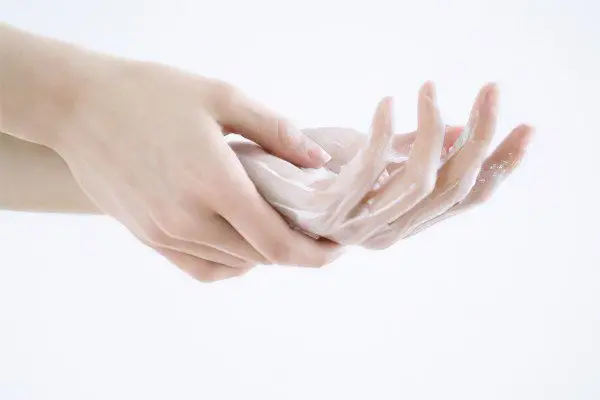
Chemical irritation of the skin is one of the types of reaction of the dermis in response to exposure to chemically active substances. Such annoyance cannot be ignored. The fact is that even a small amount of chemicals that get on the skin can cause significant damage to it. Do not wait for chemical irritation to go away on its own. It is not excluded even the death of a skin area and the impossibility of its subsequent self-recovery.
Chemical skin irritation should be distinguished from a chemical burn. So, during chemical irritation, the deep layers of the skin are not damaged, the layer of stem cells, which are responsible for the creation of new tissue, is not captured.
The symptoms of chemical irritation are as follows:
Severe redness of a limited area of the skin. Coloring returns to normal rather slowly, on average it takes from 4 to 24 hours.
A local increase in body temperature of the area where the chemical has entered.
Swelling of the skin.
There may be short-term painful sensations of low intensity. Sometimes irritation is accompanied by burning and itching of the skin.
Peeling of the skin intensifies a few days after exposure to the chemical on the skin. This is due to the fact that the damaged epidermis is being updated.
It should be noted that chemical skin irritation does not require medical attention if the symptoms resolve on their own after 4-5 days. If on the skin, in addition to the listed symptoms, the appearance of bubbles is observed, then we are talking about a chemical burn. In this case, a medical consultation is mandatory.
Causes of chemical skin irritation
The causes of chemical irritation of the skin are reduced to the ingestion of certain chemicals on it.
There are the following types:
Acids, including: acetic, citric, hydrochloric, salicylic, oxalic and boric. Irritation when a small amount of a substance enters is not extensive, it is possible to form a dense crust on the skin.
Gases, including: vapors of phenol, gasoline, alkalis, acids, mustard gas, methyl bromide. Irritation of the skin when gases enter it is most often not strong, but quite extensive.
Some drugs, for example, Metrogyl gel, Zinerit, Baziron, Benzoyl peroxide. Irritation occurs when these products are used incorrectly, especially when they are applied to the skin in excess.
Skin irritation due to prolonged exposure to antibiotics is not ruled out. This type of irritation is most often affected by pharmacists, doctors, and nurses. Irritation occurs with prolonged skin contact with streptomycin, penicillin and other antibacterial agents. Perhaps the appearance of irritation on the skin after applying gray mercury ointment to it.
It is not excluded the appearance of chemical irritation on the skin after its contact with some plants, for example, primrose flowers, leaves of figs, parsnips, plants of the ranunculus family, etc. In this regard, tropical and meadow plants are especially dangerous.
Separately, chemical irritation of the skin after applying cosmetics (creams, masks, foams, lotions, tonics, peels, etc.) should be considered. Irritation may arise due to the fact that they may contain low-quality components that were used by unscrupulous manufacturers to create their own product. Sometimes skin irritation is explained by the fact that an expired product with an expired expiration date was applied to it.
Metals and metal salts, petroleum and mineral oils, paints and alkalis are capable of provoking chemical burns. In this case, urgent medical attention is necessary, since the damage to the skin will be quite deep.
Treatment of chemical skin irritation

Treatment of chemical skin irritation is reduced to competent first aid to the victim. First of all, it is necessary to remove as much as possible the chemical agent that caused the unwanted reaction. To do this, substitute the skin under a stream of cool boiled or distilled water. If this is not possible, then ordinary running water will do. The minimum duration of washing the damaged surface is 5 minutes. This procedure should not be postponed, since the speed of elimination of irritation depends on the timely provision of first aid.
The following tips can help eliminate chemical skin irritation:
It is important that particles of earth, house dust, any biological fluid (saliva or blood of an animal or human) do not get on the damaged skin. This is the only way to prevent infection of the skin. For this, an aseptic bandage is applied to the skin. It is best to use a bandage for this purpose.
If a person experiences discomfort, pain or burning, then you can take a pill of Citramon, Nimesulide, Meloxicam or another remedy from the NSAID group.
As soon as possible, an antiseptic and wound healing ointment should be applied to the irritated skin surface. After that, the skin must be bandaged again.
Ointments with silver salts help to speed up tissue recovery after chemical irritation.
It should be taken into account that chemical irritation should not be eliminated with herbal remedies. The reaction of the interaction of chemical components with plant substances is completely unpredictable, so there is a risk of deeper tissue damage.
To eliminate chemical skin irritation, it is important to know which agents act as neutralizers of certain substances:
Phosphorus must be removed from the skin with water, by completely immersing it in the liquid.
Alkali cannot be neutralized with acids, and acids with alkali. If you ignore this rule, then there will be even more heat, which will lead to increased irritation.
Before applying a bandage, the wound should be washed for at least 15 minutes. If this is not done, then the chemical (even a small amount) under the bandage can burn through the tissues to the bones.
It is forbidden to treat the irritated surface with hydrogen peroxide, iodine, potassium permanganate. Each of these solutions can harm the skin.
A popular method of traditional medicine is the application of badger or bear fat to the irritated surface. However, this should not be done, since an excellent environment is created for the reproduction of bacteria and microbes, which will contribute to the development of suppuration.
Chemical skin irritation can be self-treated at home if you act correctly. In the event that after 3-4 days there is no improvement in the condition, you should definitely consult a doctor.









